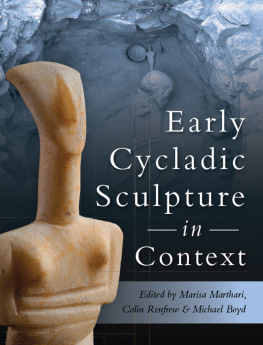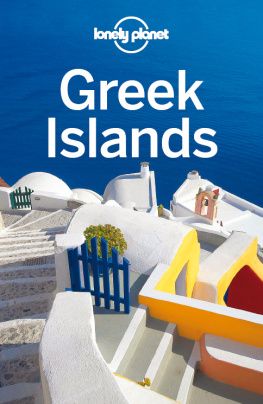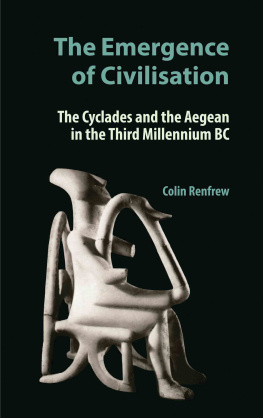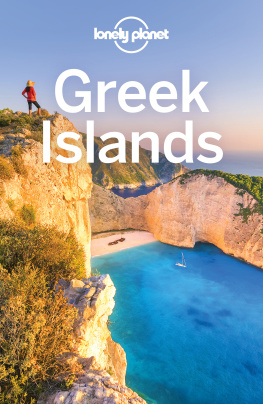PRAISE FOR JOHN FREELYS OTHER WORKS
The Western Shores of Turkey: Discovering the Aegean and Mediterranean Coasts
Enchanting guidea work of genuine scholarship, lightly worn and charmingly conveyed. I fell in love with the book and stayed enamoured until the final page. Paul Bailey, The Sunday Times
the record of a journey undertaken by a man effortlessly able to convey in depth the meaning of what he sees. Marlena Frank, Scotsman, Edinburgh
Strolling Through Athens
John Freelys magnificent walking guide to the city. Anthony Sattin, Book of the Week, The Sunday Times
Strolling Through Istanbul
a classic. The best travel guide to Istanbul. The Times
Inside the Seraglio: Private Lives of the Sultans in Istanbul
Freely provides a fascinating, easy-to-follow overview, beautifully researched and riveting in its detail. Christopher Fowler, Independent on Sunday
A richly coloured, highly entertaining book that I wished Id had to hand when I strolled around the Topkapi. Lawrence James, The Times
Istanbul: The Imperial City
This is the handiest single volume to take with you as you explore this most intriguing of cities Robert Carver, Scotsman
Freely abounds in colourful details Philip Mansel, The Independent
This study uncovers nuggets of information while having the charm of The Thousand and One Nights. Tabasim Hussain, Literary Review
If youre thinking of paying Istanbul a visit, dont go without reading this book from cover to cover at least twice. Arminta Wallace, Irish Times
The Lost Messiah: In Search of Sabbatei Sevi
Everything in this book is astonishing The Mail on Sunday
Freely reveals a superb eye for the telling detailThis is an intriguing book. Independent on Sunday
Freelys brilliantly researched tale transports the reader through a host of wonderfully arcane locations. The Independent
In memory of Ralph Bates, Vasilis Mylonas, Sotiris Peristerakis and Yorgos Spiridakis

Published in 2006 by I.B.Tauris & Co. Ltd
6 Salem Road, London W2 4BU
175 Fifth Avenue, New York NY 10010
www.ibtauris.com
In the United States and Canada distributed by Palgrave Macmillan, a division of St. Martins Press, 175 Fifth Avenue, New York NY 10010
Copyright John Freely 2006
The right of John Freely to be identified as the author of this work has been asserted by him in accordance with the Copyright, Designs and Patents Act 1988.
All rights reserved. Except for brief quotations in a review, this book, or any part thereof, may not be reproduced, stored in or introduced into a retrieval system, or transmitted, in any form or by any means, electronic, mechanical, photocopying, recording or otherwise, without the prior written permission of the publisher.
ISBN 1 84511 160 5
EAN 978 1 84511 160 1
A full CIP record for this book is available from the British Library
A full CIP record for this book is available from the Library of Congress Library of Congress catalog card: available
Typeset in Minion by Dexter Haven Associates Ltd, London
Contents
List of Maps
Introduction
T he Cyclades are the Greek islands of the central Aegean, arrayed like the stars of a spiral galaxy around their sacred centre at Delos, the mythical birthplace of Apollo. These are the quintessential Greek isles, renowned for the beauty of their seascapes, their historical monuments, and a unique way of life deeply rooted in the immemorial past of the Aegean.
I first saw the Cyclades in June of 1962, when my wife Dolores and I took our three young children to spend the summer on Naxos. We have returned to Naxos nearly every year since then, most recently in the spring of 2005, drawn back by the siren song of the Aegean isles. During those years I also explored all of the other isles of the Cyclades, travelling on inter-island ferries as well as on fishing boats and the old caiques that in times past were the only means of transporting people and goods around the archipelago, leading me to the rediscovery of what seemed to be a veritable lost empire of the sea.
Cycladic civilisation is as old as that of mainland Greece but with a greater continuity because of the remoteness of the islands, which as stepping stones between Europe and Asia have been involved in every act of the unending historical drama that has been played out in the Aegean since the first settlers made their homes on the islands more than eight thousand years ago. The tides of history that have washed over the Cyclades have left not only monuments but also patterns of culture that span the whole time-line of Greek civilisation, their roots extending back even into the pre-Hellenic dawn of human existence on the Aegean isles. At several periods in their history the islands have been at the centre of maritime empires whose power extended around the eastern Mediterranean, while at other times they have been remote and almost uninhabited outposts cut off from the centres of civilisation, though preserving the essentials of their Cycladic civilisation through the depth and tenacity of their cultural roots.
The Cyclades have always been a crossroads of civilisation, one maritime route bringing people back and forth between Europe and Asia Minor, another taking them between Crete and the Greek mainland, carrying with them their way of life, their gods, their ideas and their music. These maritime migrations are enshrined in the ancient myths of the Cyclades, such as the wanderings of Leto, mother of the divine twins Apollo and Artemis, described in the Homeric Hymns. Herodotus writes of the great population movement that brought the first Hellenes out through the islands to Asia Minor at the end of the second millennium BC, giving rise to the civilisation that produced the first philosophers of nature and the first epic and lyric poets of the Greek world. The poet Archilochus of Samos, writing perhaps a century or so after Homer, sings of unrequited love in a restless life spent at sea, as do the lyricists of todays nisiotika tragoudia, the songs of the islands, whose melodies were brought out to the Cyclades by refugees from wars in Crete and Asia Minor in the late nineteenth and early twentieth century. The modern Greek poet Odysseus Elytis writes of a moment when a rowing-boat went by full of suffering, laden with songs and lights that flicker like mountain-tops. These are the song-lines of the Aegean, echoes of the past that are still heard in the Cyclades, evoking poignant memories that come from deep within the Greek soul.
My book is a guide to the historic monuments and culture of the Cyclades as well as to the way of life of the islanders, particularly their religious festivals, the paneyeria, which mark the passing seasons of the Cycladic year in a calendar whose cycles were established in the night of time and adapted by the successive religions that took root in the archipelago, from paganism to Christianity, celebrated in songs and dances with ancient resonances and movements.
Life in the Cyclades has changed in many ways since we first came to Naxos, particularly the development of beach resorts with their tavernas, bars and discotheques, bringing crowds of tourists to stretches of pink-white sands where once I could walk for miles without seeing anyone other than an occasional farmer on his mule. My book reflects these changes, though it leaves to other guidebooks a description of things touristic, concentrating instead on the history, monuments and culture of the Cyclades, described in the context of our own experiences with the friends we have made on Naxos and the other islands, particularly those mentioned in my dedication.
Next page
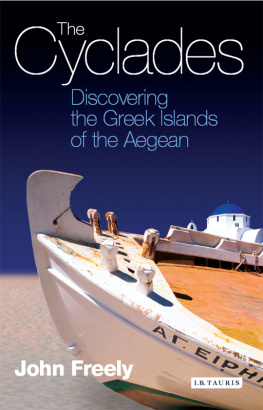
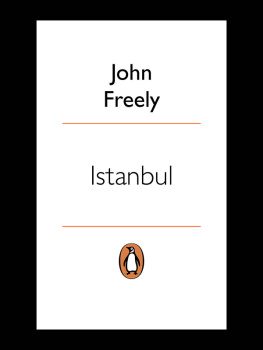
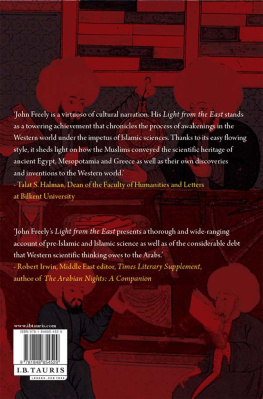
![Freely - Stamboul sketches: [encounters in old Istanbu]l](/uploads/posts/book/201354/thumbs/freely-stamboul-sketches-encounters-in-old.jpg)


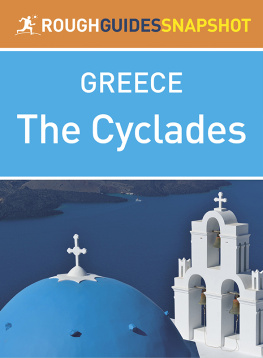
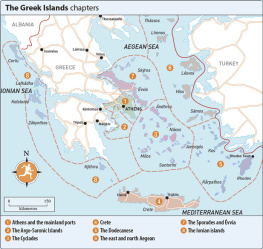


![Greek islands [2018]](/uploads/posts/book/209249/thumbs/greek-islands-2018.jpg)
